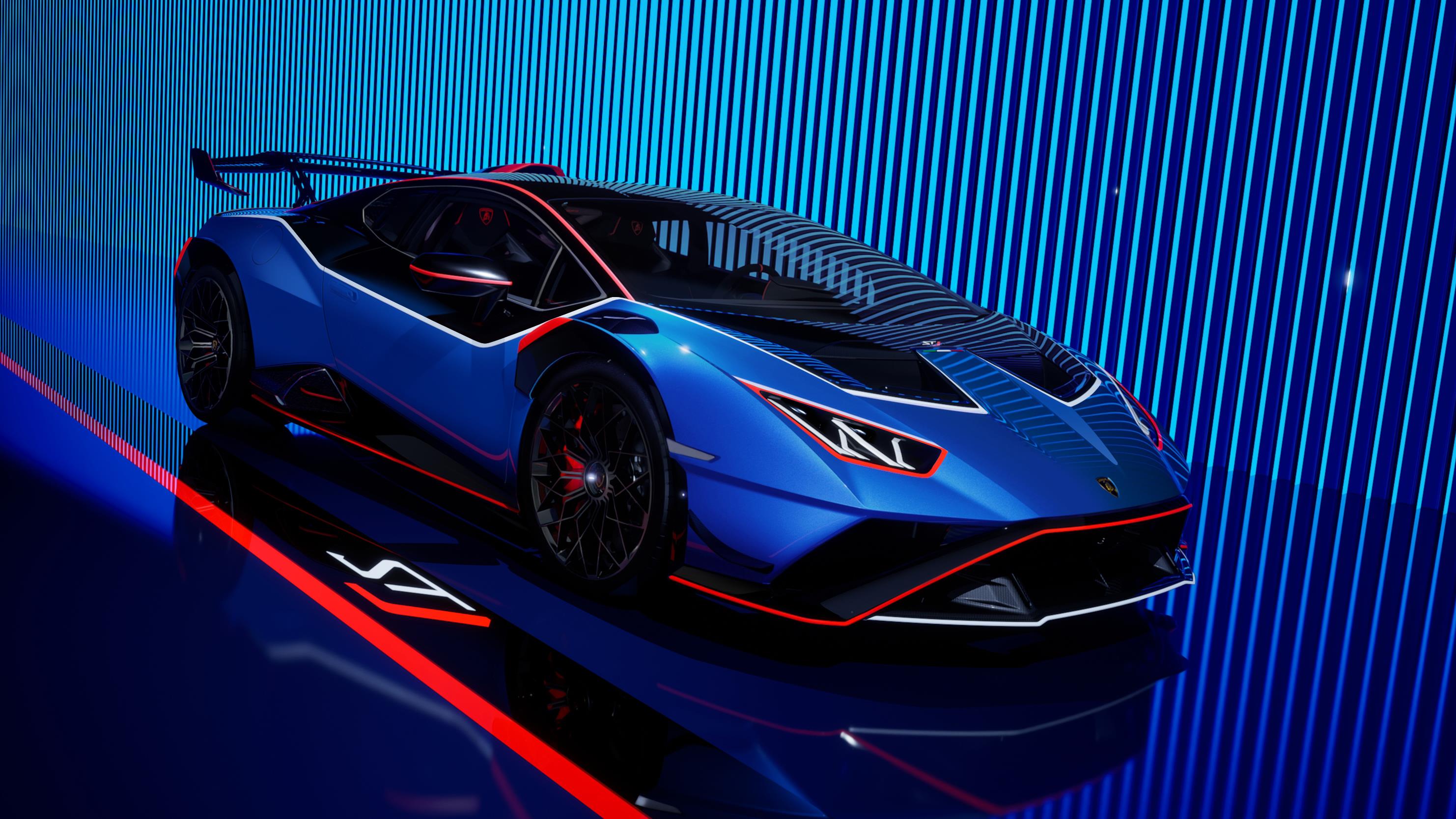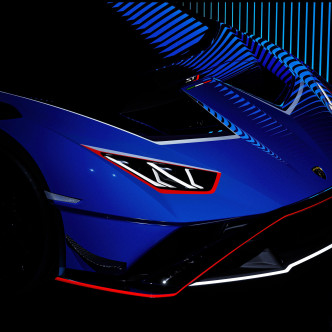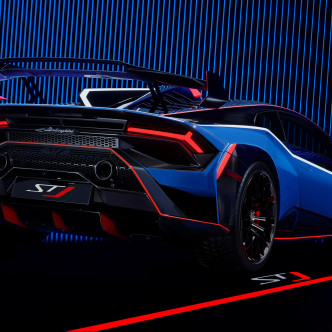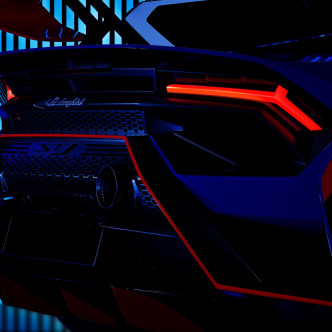Lamborghini Huracán STJ: “The Last Dance”
Automobili Lamborghini celebrates its iconic V10 super sports car with a limited edition of ten units equipped with an exclusive performance enhancement package.
Automobili Lamborghini presents the Huracán STJ, a limited edition of ten units and the last celebration of the super sports car equipped with the V10 engine, an engineering icon of the Sant’Agata Bolognese carmaker.
The naturally aspirated V10 engine is a symbol of Automobili Lamborghini’s history, contributing to the success of the Huracán family first presented in 2014, which by the end of the year will be replaced by an all-new super sports car equipped with a new hybrid powertrain.
With a design based on the Huracán STO[1], the STJ represents the pinnacle of performance achieved in the Huracán family’s history, thanks to the introduction of an exclusive package designed to further enhance the racing spirit of the Huracán STO. STJ stands for Super Trofeo Jota: Super Trofeo pays tribute to the Lamborghini one-make championship, established in 2009, while Jota refers to Appendix J of the FIA Regulations that sets the racing car specifications, and to a long tradition of Lamborghini models developed for the track, starting from the Miura SVJ and continuing with the Aventador SVJ.
The Huracán STJ stands out thanks to its dedicated aerodynamic package developed by Lamborghini Squadra Corse technicians, leveraging the know-how acquired over ten years at the top of Gran Turismo competitions. The sophisticated aerodynamics of the STO have been further improved with the addition of the iconic “cofango”: two all-new carbon fiber aerodynamic appendages (flicks), while the angle of the rear wing has been increased by 3° compared with the production model to ensure a 10% increase in aerodynamic load while keeping the car perfectly balanced.
Like the STO, the Huracán STJ delivers a maximum power output of 640 CV at 8000 rpm and a torque of 565 Nm (at 8000 rpm) controlled by a 7-speed dual clutch (LDF - Lamborghini Doppia Frizione) gearbox, combined with the rear-wheel drive only.
The mechanical grip has been increased significantly by a set of four adjustable racing-derived shock absorbers, which replace the standard active components. The shock absorbers are four-way adjustable to optimize the rebound and compression at both high and low frequencies, giving total freedom of choice in the set-up based on the track characteristics. The special characteristics of the shock absorbers allow lower spring stiffness to be used while maintaining optimal dynamic control of the car and increasing steering precision. To maximize the driving dynamics, special Bridgestone Potenza Race tires have been developed, made with a specific high grip compound and installed on 20” single-nut rims.
These technical features enabled an improvement of more than one second on the Nardò Technical Center Handling Track laptime compared to the Huracán STO.
The sporty character and exclusivity of the car are also reflected in the aesthetics, with two different configuration and livery options definitively designed by Lamborghini Centro Stile. The first combines Grigio Telesto (gray) bodywork combined with a Nero Noctis (black) roof and Rosso Mars (red) and Bianco Isi (white) details, while the cabin is characterized by Nero Cosmus (black) Alcantara seats with leather details and contrasting Rosso Alala (red) stitching. The second configuration has Blu Eliadi (blue) bodywork with a Nero Noctis (black) roof and Rosso Mars (red) and Bianco Isi (white) details. Both versions also feature a special, numbered carbon fiber plate marked “1 of 10”. In addition, there is the option to add a custom plate on the passenger side according to the customer’s instructions.
[1] Fuel consumption and emission values of Huracán STO; Fuel consumption combined: 13.9 l/100km (WLTP); CO₂-emissions combined: 331 g/km (WLTP)




